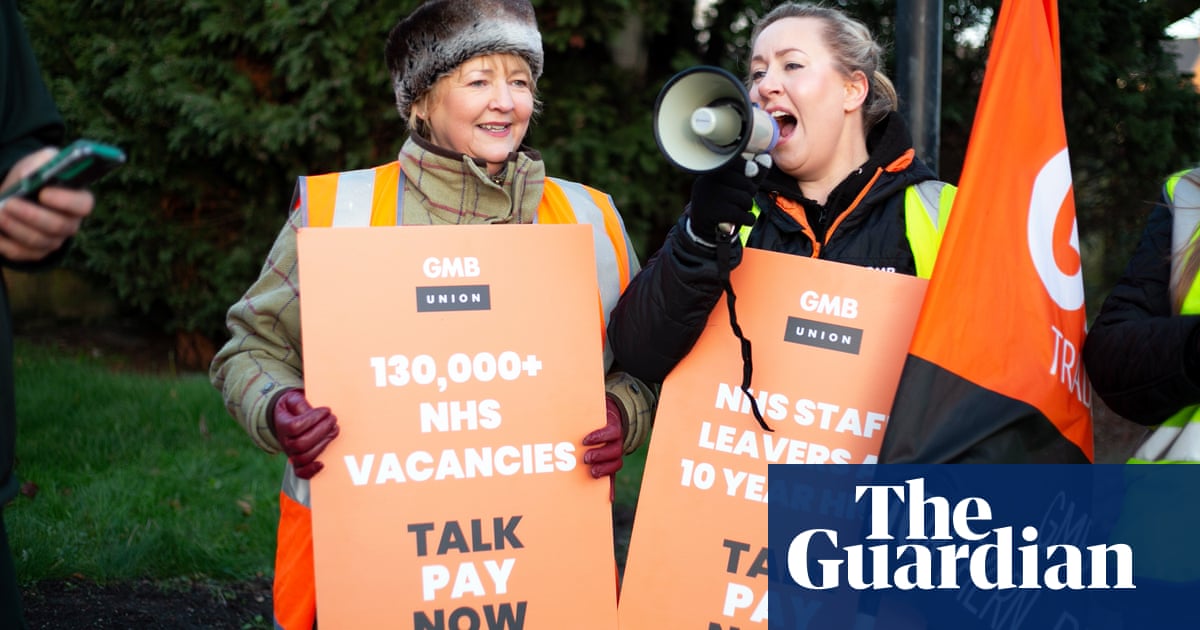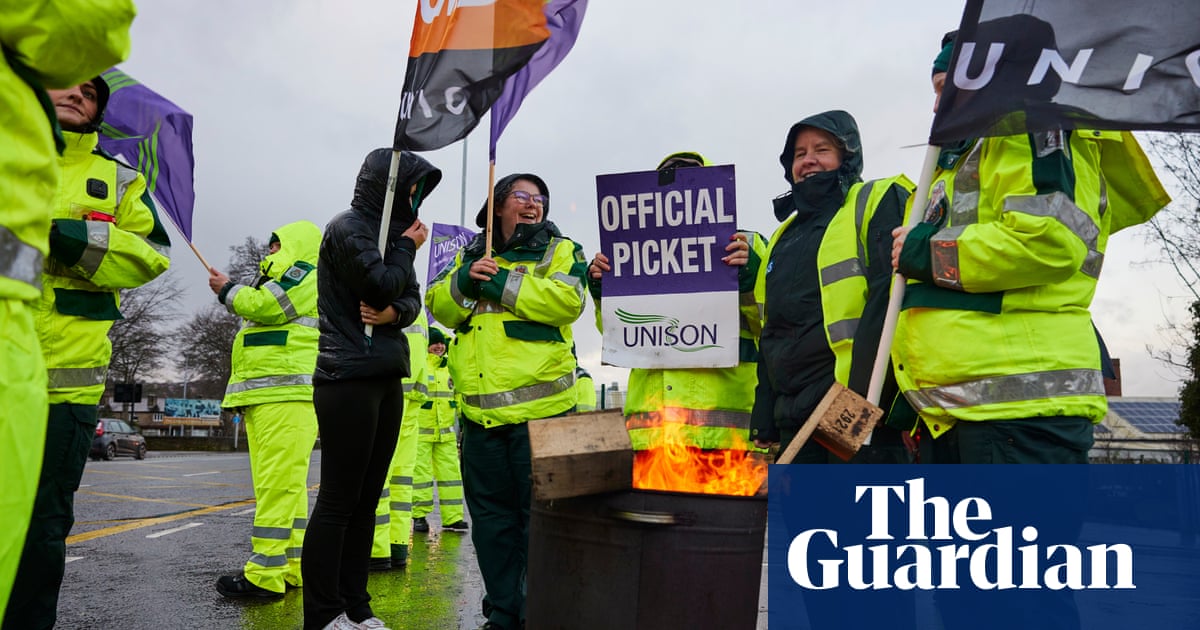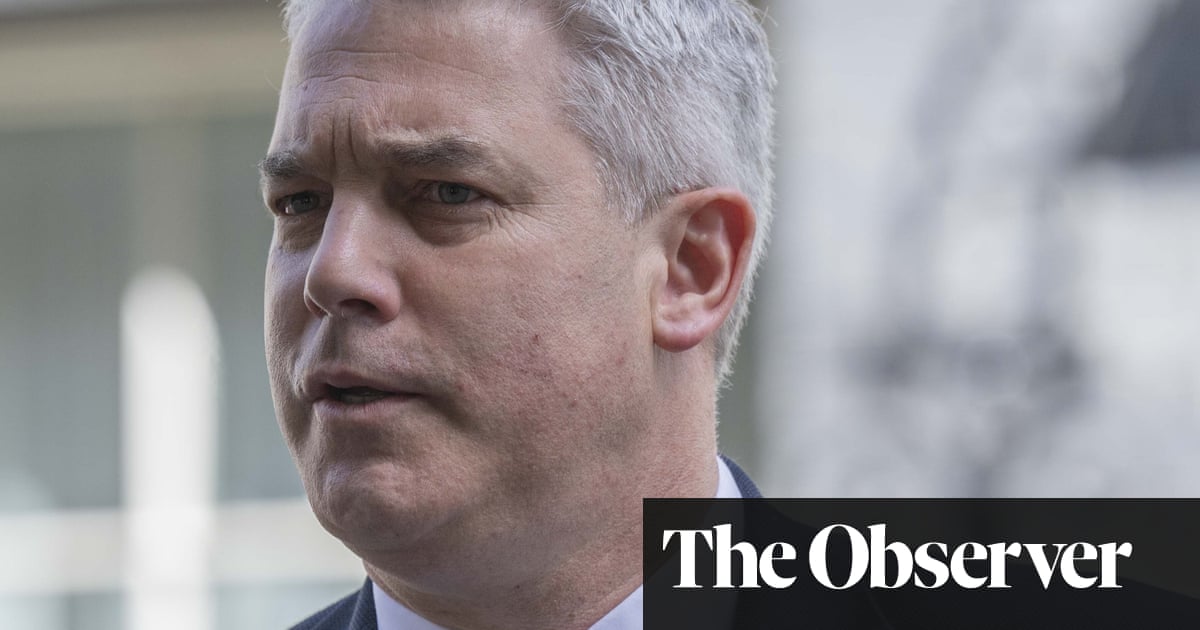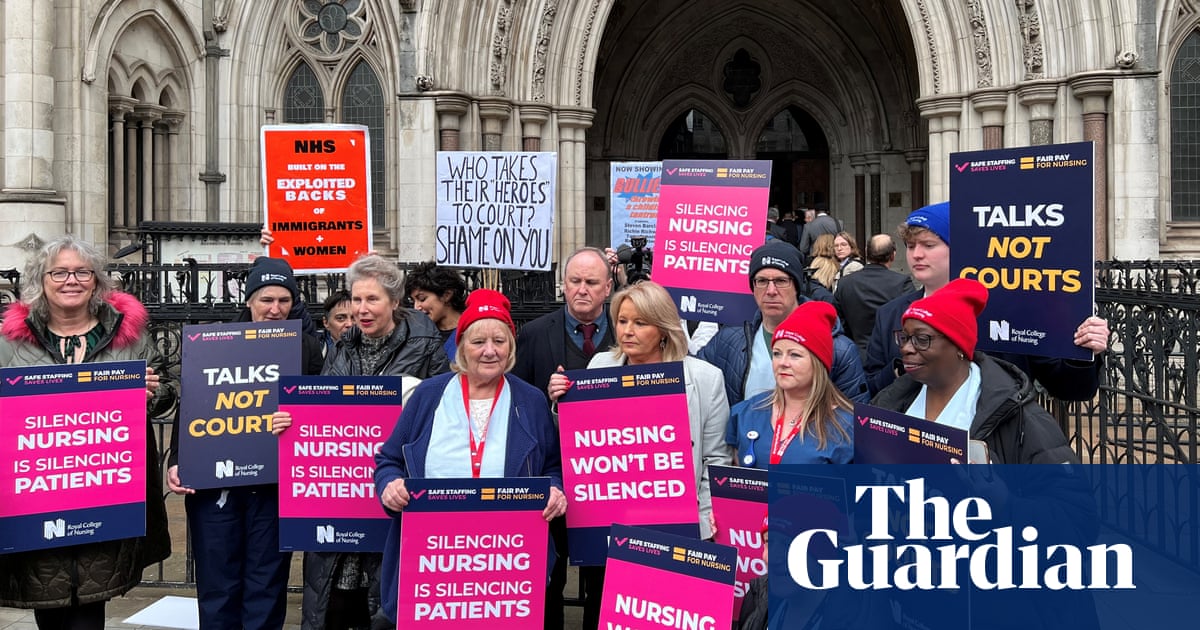
The head of a leading public sector union has urged ministers to make a pay offer to striking workers, insisting it does not necessarily have to beat inflation.
Speaking hours after the GMB announced it would postpone till 11 January an ambulance workers’ strike planned for 28 December, the union’s national secretary, Rachel Harrison, told the Guardian an additional pay offer would be taken to members even if it was less than inflation.
The development potentially signals a route forward amid a growing wave of stoppages and what has seemed an intractable row over pay.
Harrison said: “What we are saying to the government is: come to us, make us an offer, GMB members will vote on it. We are not making a specific demand. We would still like to see an inflation-busting offer and the restoration of decades’ worth of lost wages, but if an offer is made, we will take that back to our members to decide.”
Saying the decision to delay the new ambulance strike had been made to show “gratitude” to the public for their support during this week’s stoppage, Harrison’s comments on pay are the most explicit sign yet from any leader of a large union that they might accept an offer below inflation.
The Royal College of Nursing (RCN) has also said it is willing to give way on its demand of 5% above inflation, while Unison dropped a hint on Thursday it too was prepared to compromise. However, the RCN also announced two new strike dates in January.
Christina McAnea, Unison’s general secretary, urged ministers to offer its 400,000 members who work in the NHS across the UK “an increase better matching inflation”.
However, ministers have insisted they will not contemplate pay rises above those recommended by the public sector pay review bodies, saying that doing so would fuel double-digit inflation and be unaffordable.
Steve Barclay, the health secretary, reiterated this robust stance on Friday, saying that to agree to any higher pay demand “would mean taking money away from frontline services and cause further delays to care”.
Responding to the GMB’s decision and the RCN’s new strikes, Barclay said: “While union members will not be going ahead with strikes over Christmas, we are disappointed they have announced further coordinated strikes in January to cause maximum disruption at a time when the NHS is already under extreme pressure.
“Strikes are in no one’s best interest, least of all patients, and I urge unions to reconsider further industrial action to avoid an even greater impact on patients.”
The new RCN action will see nurses refuse to work at 55 NHS trusts on 18 and 19 January – 11 more than the 44 at which they staged their first strikes on 15 and 20 December.
“The government had the opportunity to end this dispute before Christmas but instead they have chosen to push nursing staff out into the cold again in January,” said Pat Cullen, the RCN’s general secretary and chief executive.
The union’s decision means the NHS in England will face three consecutive weeks of disruption from strikes in January, after Unison announced on Thursday that members in five of England’s 10 regional ambulance services would stage 24-hour stoppages on 11 and 23 January.
The RCN in Scotland, which is engaged in separate pay talks, is also set to announce strikes in January after talks with the Scottish government ended on Friday without agreement. Scotland’s health secretary, Humza Yousa, is set to impose an existing offer worth an average of 7.5%.
On Friday Border Force staff and postal workers were the latest to go on strike, with six airports – Heathrow, Gatwick, Birmingham, Manchester, Glasgow and Cardiff – all warning incoming travellers to expect queues at immigration.
Mark Serwotka, the head of the Public and Commercial Services Union, told BBC Radio 4’s Today programme that his union was prepared for six months’ worth of rolling industrial action.
“We have a strike fund that means we can sustain this action after Christmas,” he said. “The strike mandate lasts right up until May – we will be supporting this action until May and we would reballot again if we have to.”












